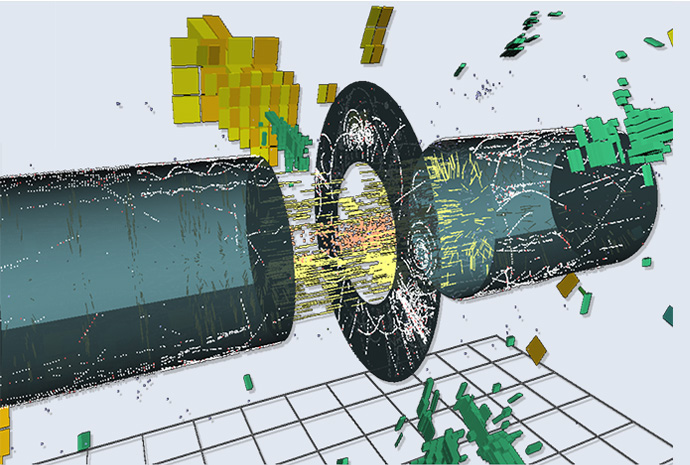MEPhI group in ATLAS experiment

The ATLAS experiment (see details here) is a multi-purpose particle physics experiment at the Large Hadron Collider at CERN. It was designed to be able to detect and to measure parameters of a wide spectrum of particles produced in nuclear collisions. The main goal of this experiment is to probe the Standard Model and to search for new discoveries in the head-on collisions of protons (and heavy ions) of extraordinarily high energy.
The MEPhI group of the ATLAS experiment has been playing a leading role in the design, construction and operation of Transition Radiation Tracker – TRT (see details here). This detector is one of the main detectors of the central tracking system of the ATLAS experiment. The idea of such detector was proposed by the MEPhI group, led by prof. B.A. Dolgoshein in 1989.
MEPhI group has a large experience in the field of gaseous detector development for particle physics. Now it provides a required research support for the TRT operation at LHC. MEPhI experts are coordinating and guiding the work of research groups in the ATLAS TRT project. MEPhI group also contributes to the software development for both TRT and ATLAS projects.
After the experiment commissioning, MEPhI group significantly extended its area of interests. Now it is involved in analysis of the experimental data.
It also takes part in development of new micro-pattern detectors and became a member of a new muon system upgrade project of the ATLAS experiment.
Some information concerning main activities of the MEPhI group of the ATLAS experiment is presented below.
Main activities
- Studying of the Higgs boson properties
- Tests of the Standard Model
- Search for exotic particles
- Quark-Gluon Plasma search
- Search for spatial extra dimensions
- ATLAS TRT (Transition Radiation Detector)
- New detectors
- Information technology in high energy physics
- Master classes
Reports
Contacts
Anatoli Romaniouk







